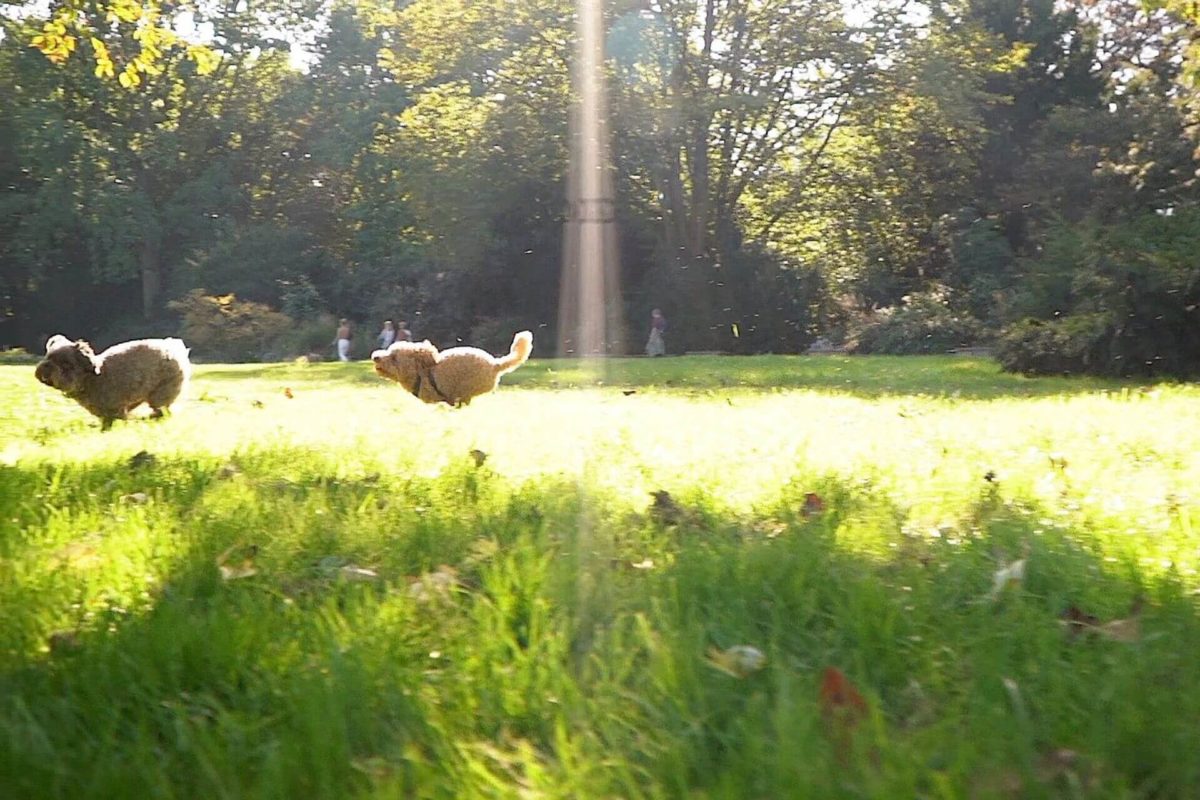English
We would have done things differently
Buying a Poodle – What we would do differently
If we could turn back time, we would certainly do a few things differently. Here you can find out what they are:
1. More calmness
We have always known how important sleep is for dogs. Adult dogs need 17-20 hours of sleep, and puppies and old dogs even more. But little things, like looking and paying attention, can disturb the rest of a hyperactive miniature poodle. Sure, every dog is different, but we should have done everything even more relaxed with Moki. Therefore, our conclusion after 1 ½ years with a miniature poodle: You can’t „practice“ calmness and relaxation enough. But it is never too late to integrate more relaxation and rest into everyday life, such as:
- Look less at the dog! Yes, even if he looks incredibly cute!
- Give attention when you choose to, not when the dog nudges or pounces on you.
- Keep calm and exude tranquility yourself.
- Start and also END every game session.
- More search games or nose work (we have a video about it on YouTube) than wild brawls and tugs.
- Check the dog food because sugary treats are often like a stimulant. Corn also contains a lot of sugar.
- Break patterns that fuel a lot of excitement. For example, when the doorbell rings, the dog should not bark and rush to the door, but learn to lie down quietly in its basket.
After some time, you will notice a change. Since we have been trying even harder to ensure a balanced everyday life, Moki has also become a little calmer.
2. Stay alone vs. come along
In puppy school, the trainers already told us: „Please practice staying alone with your dog early on“. They were absolutely right about that. Because we were very consistent from the start, Moki was always quite good at staying alone. (However, due to COVID, things have gotten a little worse again.)
But we have trained Moki to stay alone so much, that we forgot to practice accompanying. We never thought that this could become a problem! We used every restaurant visit to practice staying alone. So, Moki was just too seldom in a restaurant to be able to relax there.
However, we hope that we can also solve this problem through more general relaxation (see point 1) and blanket training. We are already getting Moki used to his relaxation blanket step by step at home. He’s supposed to learn, when I’m lying on the blanket I can rest and don’t have to worry about anything. Hopefully, this will also allow him to relax in the restaurant. So, he no longer has to watch everything carefully.
3. Driving in the car
Because we live in the city, we rarely need our car. That’s why Moki doesn’t ride in the car that often, either. As a puppy, he had no problems with car rides. He snoozed most of the time. We thought to ourselves: Great, this issue is settled. Figured wrong! Sometime in early spring, when Moki was about 5 months old and a bit stronger, we wanted to take him to the park more often. And that is when the drama unfolded. With each ride, his anticipation and excitement grew worse. Because by always using the car to go on great trips, we kind of trained him to be excited. Now it’s time to downshift. So, it’s off to the freeway, around the block, or off to the shops and back home, each time without getting out of the car. Moki should no longer associate anything exciting with driving. We hope that one day we might be able to drive into the park without Moki being nervous and stressed.
4. Choose a dog breed according to your character
Perhaps we could have done a little more research when choosing the breed that would fit our character. Sure, Miniature Poodles are super-friendly dogs, suitable for beginners and families, but they are also very lively, a bit nervous, and sometimes over-excited. But as we’re not the most unhurried people as well, the combination can be a bit explosive. A Standard Poodle, for example, has a somewhat calmer personality and would probably have suited us even better, like a complementary addition. So maybe the next dog will also be a poodle, but one or two sizes bigger.
5. Contact a dog trainer sooner
We regularly attended the puppy and young dog school, but after that, we continued training on our own. At some point, after about 1 ½ years, we had reached a point where we could no longer make any progress on our own and were dissatisfied with the current situation. That’s why we decided to work on certain topics with a professional dog trainer. We highly recommend it and wish we had done this sooner! A good trainer sees the situation with much clearer eyes and with the necessary distance to give important tips and to advise new training methods.
Conclusion:
You should admit the mistakes you have made. In most cases, the dog can do absolutely nothing about his misbehaviors and quirks. Dogs only behave the way we trained them. But don’t worry, it’s never too late to restructure or restart your dog’s training. If needed, you can take advice from a professional trainer. So, admit mistakes and go for it!



